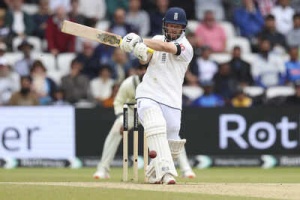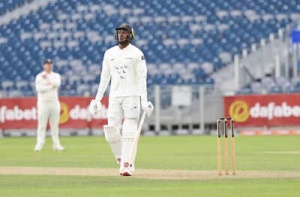The unexpected demise of actress and model Shefali Jariwala has sent shockwaves through the entertainment industry. Jariwala, known for her appearance in the popular early 2000s song "Kaanta Laga," reportedly succumbed to sudden cardiac arrest on the night of June 27th. Despite immediate medical attention at a Mumbai hospital, she was pronounced dead at the young age of 42.
While the precise cause of death is still to be determined, initial reports indicate a sudden cardiac arrest, a critical medical emergency where the heart abruptly ceases to function. This tragic event serves as a stark reminder that cardiac arrest can affect individuals of all ages and health statuses. Often, the body exhibits subtle warning signs that, if recognized promptly, can be life-saving.
Here are five frequently overlooked or misinterpreted warning signs of sudden cardiac arrest:
Feeling tired after a demanding day is a common experience. However, persistent and unexplained fatigue, particularly when it feels significantly different from typical tiredness and doesn't improve with rest, warrants attention.

The American Heart Association identifies unexplained fatigue as a potential early indicator of heart problems, especially in women. Individuals who have experienced cardiac arrest have often reported a profound sense of exhaustion in the days or weeks leading up to the event. This fatigue may manifest as a lack of energy rather than mere sleepiness, gradually intensifying and lingering.
It's essential to pay attention to the quality of fatigue. If the body feels unusually weak, even during simple activities like walking short distances or climbing stairs, it might be more than "just tiredness."
Contrary to popular belief, cardiac events don't always begin with intense chest pain. In many cases, the initial symptom is a subtle sensation of tightness, fullness, or an unidentifiable discomfort in the chest.
This is particularly common in individuals under 50 and women, where symptoms can differ from the classic "chest-clutching" presentation. Some describe it as a heavy sensation, like a belt tightening around the chest or an invisible weight pressing down.
Such sensations should not be easily dismissed as gas, muscle strain, or stress. If the feeling arises suddenly or intensifies with exertion, it could indicate that the heart isn't receiving sufficient oxygen, a potential precursor to cardiac arrest.

An elevated heart rate following exercise or stress is a normal physiological response. However, when the heart starts beating unusually fast, too slow, or with skipped beats without an obvious trigger, it's advisable to seek medical evaluation.
This condition, known as arrhythmia, is frequently observed in individuals before a cardiac arrest. It can manifest as palpitations, a fluttering, or a pounding sensation in the chest. In some instances, it may be asymptomatic and only detectable through medical testing.
The most concerning scenarios are rhythm changes occurring during rest or sleep, especially when accompanied by dizziness or shortness of breath. These symptoms suggest that the electrical signals regulating the heart are malfunctioning, a significant factor in cardiac arrest.

Breathlessness is not always indicative of lung problems. In numerous cardiac cases, particularly preceding a sudden arrest, individuals experience a peculiar shortness of breath that seems disproportionate to the situation.
This can occur even while at rest or engaging in light activities. It may feel like an inability to fully "catch" one's breath, despite the lungs functioning normally. Some individuals may also experience mild chest discomfort or lightheadedness.
The medical explanation lies in the heart's reduced pumping efficiency, leading to decreased oxygen supply and subsequent breathing difficulties. This symptom can appear several days before a major cardiac event, providing a crucial opportunity for intervention.
While dizziness can stem from various benign causes, sudden and unexplained dizziness, particularly when accompanied by nausea, sweating, or paleness, should not be ignored.
Cardiac arrest often results in impaired blood flow to the brain. When the heart's pumping action is compromised, the brain quickly detects the deficiency, leading to dizziness, confusion, or even temporary blackouts in some cases.
Many individuals who have experienced cardiac arrest retrospectively report having fainted or felt faint in the days prior, but they didn't attribute it to a heart-related issue. These fainting episodes can serve as silent warnings, especially for individuals without a history of such occurrences.
Identifying underlying conditions that predispose to sudden cardiac arrest.
[This article is based on available reports and health guidelines]
Newer articles
Older articles
 The 'Good Cop, Bad Cop' Parenting Strategy: Does It Do More Harm Than Good?
The 'Good Cop, Bad Cop' Parenting Strategy: Does It Do More Harm Than Good?
 5 Natural Ways to Strengthen Your Heart and Reduce Disease Risk
5 Natural Ways to Strengthen Your Heart and Reduce Disease Risk
 Broadside: Broad Slams India's Team Choices After Headingley Test, Calls for Edgbaston XI Changes
Broadside: Broad Slams India's Team Choices After Headingley Test, Calls for Edgbaston XI Changes
 Wimbledon Serves Up India: Tennis Giant Courts Cricket-Crazy Nation for Growth
Wimbledon Serves Up India: Tennis Giant Courts Cricket-Crazy Nation for Growth
 England's Ben Duckett: The New Virender Sehwag? Former Coach Draws Bold Comparison
England's Ben Duckett: The New Virender Sehwag? Former Coach Draws Bold Comparison
 Archer Set for England Return? Broad and Buttler Advocate for Pacer's Second Test Inclusion
Archer Set for England Return? Broad and Buttler Advocate for Pacer's Second Test Inclusion
 Ashada Gupt Navratri 2025: Unveiling Dates, Timings, and Esoteric Significance
Ashada Gupt Navratri 2025: Unveiling Dates, Timings, and Esoteric Significance
 Suryakumar Yadav's Sports Hernia Surgery: What It Is, Who's at Risk, and Path to Recovery
Suryakumar Yadav's Sports Hernia Surgery: What It Is, Who's at Risk, and Path to Recovery
 The Evil Eye: Protective Charm or Portal to Darkness? Exploring the Symbol's Dual Interpretations
The Evil Eye: Protective Charm or Portal to Darkness? Exploring the Symbol's Dual Interpretations
 Jaiswal Eyes Gavaskar's 49-Year Record: India's Opener Nears Milestone 2,000 Test Runs in Edgbaston Clash
Jaiswal Eyes Gavaskar's 49-Year Record: India's Opener Nears Milestone 2,000 Test Runs in Edgbaston Clash